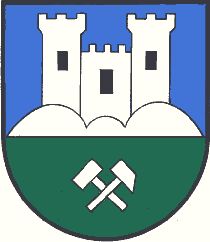Thörl: Difference between revisions
Jump to navigation
Jump to search
Knorrepoes (talk | contribs) m (Text replace - "'''Origin/meaning :'''<br>" to "====Origin/meaning====") |
Knorrepoes (talk | contribs) m (Text replace - "|width="15%"|50 px|right |}" to "|width="15%"|50 px|right |}<seo title="Wappen, Gemeindewappen" />") |
||
| Line 3: | Line 3: | ||
|width="70%" align="center" |'''Heraldry of the World<br>Civic heraldry of [[Austria]] - [[Austria|Österreichische Gemeindewappen]]''' | |width="70%" align="center" |'''Heraldry of the World<br>Civic heraldry of [[Austria]] - [[Austria|Österreichische Gemeindewappen]]''' | ||
|width="15%"|[[File:Austria.jpg|50 px|right]] | |width="15%"|[[File:Austria.jpg|50 px|right]] | ||
|} | |}<seo title="Wappen, Gemeindewappen" /> | ||
'''THÖRL''' | '''THÖRL''' | ||
Revision as of 13:25, 7 November 2012
| Heraldry of the World Civic heraldry of Austria - Österreichische Gemeindewappen |
THÖRL
State : Steiermark
District : Bruck an der Mur
Origin/meaning
The arms were granted on February 1, 1955.
Thörl is the name of a very narrow valley in Upper Styria through which the Stübmingbach flows. In the Middle Ages, the valley was fortified with a wall, a gate (a small one; Thörl is a diminutive of Tor, gate) and a tower. Access could easily be denied. This was important, as Thörl lies at the road to the Seeberg pass; and also, because the valley was a home of ironworks. At least since 1372, Thörl has produced steel and steel products. Thörl was one of the centres of the "Eherne Mark", the "Border march of Iron", as Styria was often called.
Literature : Image provided by Karl Palfrader (k.palfrader@aon.at), MStLA 12 (1962), p. 44

